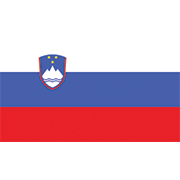Fiscal subject related
- Micro-Entrepreneurs: One significant exemption from the fiscalization obligation in Slovenia applies to micro-entrepreneurs. Microentrepreneurs are small businesses with low annual turnovers. They are not required to install a fiscal cash register or implement electronic fiscalization systems. This exemption recognizes the minimal financial impact of these businesses on tax revenue.
- Non-Profit Organizations: Non-profit organizations that engage in activities solely for charitable, humanitarian, religious, or educational purposes are generally exempt from fiscalization requirements. This exemption acknowledges their unique status and the importance of supporting their noble causes.
- Government Service: Government agencies and entities providing public services are typically exempt from fiscalization requirements for their official transactions. This exemption streamlines administrative processes within the public sector.
- Utilities (Electricity and Water Supply): Providers of essential services such as electricity and water supply are often exempt from fiscalization obligations for these services. This exemption ensures the smooth delivery of vital utilities to citizens.
- Train Tickets: Businesses selling train tickets may be exempt from fiscalization requirements for these transactions, recognizing the specific nature of ticket sales.
- Tax Stamps: Transactions related to the sale of tax stamps may be exempt from fiscalization obligations as they involve unique documentation and regulations.
- Lottery: Lottery ticket sales may also be subject to exemptions from fiscalization requirements, acknowledging the distinct nature of lottery operations.
- Assurance: Businesses offering assurance and financial services may be exempt from fiscalization obligations for certain transactions, recognizing the complexities involved in this sector.
- Newsletters: Distributors of newsletters and similar informational materials may be exempt from fiscalization requirements for these distributions as they serve an educational or informational purpose.
Other news from Slovenia
VIDA regulation adopted—what does that mean for business?
The EU adopted the VAT in the Digital Age (ViDA) package on March 11, 2025, introducing major changes to the VAT system starting January 1, 2027. Key reforms include mandatory digital VAT reporting by 2030, new VAT collection rules for online platforms, and expanded One-Stop Shop (OSS) registration to simplify cross-border compliance. Additional measures, such as mandatory e-invoicing, phasing out... Read more



Slovenia: Beginning in July 2025, mandatory VAT reporting and pre-filled VAT returns
 Slovenia
Author: Nikola Novković
Slovenia
Author: Nikola Novković
Starting July 1, 2025, all VAT payers in Slovenia must provide proof of calculated VAT and VAT deduction, with pre-filled VAT returns introduced under Article 88.d. The Financial Administration's website provides detailed guidelines and technical specifications for submission via the KIR KPR online service. All VAT payers are required to provide proof of calculated VAT and proof of VAT ded... Read more



New document was uploaded: S4F backoffice patch
S4F backoffice patch is intended for users who have already installed S4F backoffice and are intended to update existing installations to latest version. To do so apply only patches that are marked with version number that is newer than your currently installed instance of backoffice. Read more



Slovenia's 2027 B2B E-Invoicing Proposal
 Slovenia
Author: Nikola Novković
Slovenia
Author: Nikola Novković
Slovenia's new draft law on B2B e-invoicing, submitted in February 2025, postpones the mandate from July 2026 to January 2027 and removes real-time reporting, requiring invoice data submission within eight days via the e-SLOG standard. The proposal mandates ISO/IEC 27001 certification for accredited e-invoicing service providers and recognizes the Peppol network for B2B exchanges. The reform aims... Read more



Slovenia: EU Targets Unsafe E-Commerce Imports with New Measures
The European Commission is tightening regulations on e-commerce imports to address the surge of unsafe and counterfeit goods, particularly from China, by reforming customs rules and increasing product safety checks. Key measures include removing the duty exemption for low-value parcels, introducing a potential customs fee, establishing priority control areas, and launching an EU-wide product safet... Read more



Slovenia: eDavki Updates
 Slovenia
Author: Ivana Picajkić
Slovenia
Author: Ivana Picajkić
Slovenia's eDavki portal received updates on February 6, 2025, to correct errors in DOD-DDPO and DDD-DDD tax returns, including fixes for total calculations and balance sheet data submission. Read more



New document was uploaded: S4F backoffice patch
S4F backoffice patch is intended for users who have already installed S4F backoffice and are intended to update existing installations to latest version. To do so apply only patches that are marked with version number that is newer than your currently installed instance of backoffice. Read more


